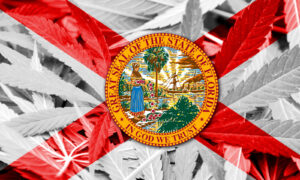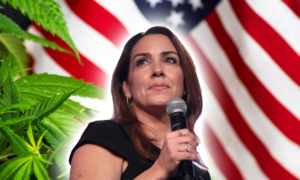Safe Harbor Financial Enters Into Agreement To Resolve $64.7 Million In Payment Obligations

11.2 million shares of Class A common stock will be issued as a result
SHF Holdings, Inc., d/b/a/ Safe Harbor Financial (“Safe Harbor” or the “Company”) (NASDAQ: SHFS), a leader in facilitating banking, payments, and financial services to the regulated cannabis industry, today announced that it has entered into agreements with Partner Colorado Credit Union (“PCCU”), the Company’s largest stockholder, resulting in the settlement of the approximately $64.7 million deferred payable owed to PCCU (the “Agreement”).
Under the terms of the Agreement, the Company has agreed to resolve approximately $64.7 million of total payment obligations owed from the September 28, 2022 business combination in exchange for a 5-year, $14.5 million senior secured note bearing a 4.25% annual interest rate and issuance of 11.2 million shares of Class A common stock in the Company.
“A testament to the strong business we have built, we believe this Agreement reflects our strategic partner’s confidence in our ability to execute our long-term growth plans and build shareholder value,” said Sundie Seefried, Chief Executive Officer of Safe Harbor. “Importantly, this restructuring of our balance sheet removes previous financial constraints on our business, enabling us to service the current portion of all our long-term debt while better positioning Safe Harbor to pursue a variety of growth opportunities.”
About Safe Harbor
Safe Harbor is among the first service providers to offer compliance, monitoring and validation services to financial institutions, providing access to traditional banking services to cannabis, hemp, CBD, and ancillary operators, making communities safer, driving growth in local economies, and fostering long-term partnerships. Currently managing more than 1000 cannabis-related relationships, Safe Harbor, through its financial institution clients, implements high standards of accountability, transparency, monitoring, reporting and risk mitigation measures while meeting Bank Secrecy Act obligations in line with FinCEN guidance on cannabis-related businesses. Over the past eight years, Safe Harbor has facilitated more than $17 billion in deposit transactions for businesses with operations spanning nearly 40 states and US territories with regulated cannabis markets.
For more information, visit www.shfinancial.org.
Forward-Looking Statements
Certain statements contained in this press release constitute “forward-looking statements” within the meaning of the U.S. securities laws. Forward-looking statements may include, but are not limited to, statements with respect to trends in the cannabis industry, including proposed changes in U.S and state laws, rules, regulations and guidance relating to Safe Harbor’s services; Safe Harbor’s growth prospects and Safe Harbor’s market size; Safe Harbor’s projected financial and operational performance, including relative to its competitors; new product and service offerings Safe Harbor may introduce in the future; the impact of recent volatility in the capital markets, which may adversely affect the price of the Company’s securities; the outcome of any legal proceedings that may be instituted against Safe Harbor; other statements regarding Safe Harbor’s expectations, hopes, beliefs, intentions or strategies regarding the future; and the other risk factors discussed in Safe Harbor’s filings from time to time with the Securities and Exchange Commission. In addition, any statements that refer to projections, forecasts or other characterizations of future events or circumstances, including any underlying assumptions, are forward-looking statements. The words “anticipate,” “believe,” “continue,” “could,” “estimate,” “expect,” “intends,” “outlook,” “may,” “might,” “plan,” “possible,” “potential,” “predict,” “project,” “should,” “would,” and similar expressions may identify forward-looking statements, but the absence of these words does not mean that a statement is not forward-looking. Forward-looking statements are predictions, projections and other statements about future events that are based on current expectations and assumptions and, as a result, are subject to risks and uncertainties. These forward-looking statements involve a number of risks and uncertainties (some of which are beyond the control of Safe Harbor), and other assumptions, that may cause the actual results or performance to be materially different from those expressed or implied by these forward-looking statements.




































